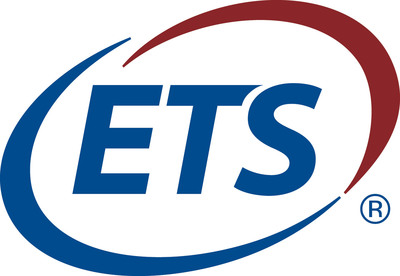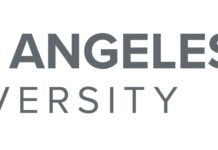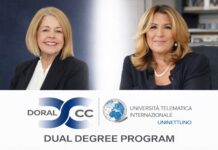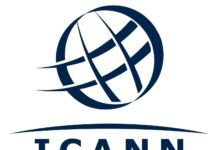ETS to Host Experts for Innovative Assessment of Collaboration 2014
WASHINGTON, Oct. 7, 2014 /PRNewswire-HISPANIC PR WIRE/ — The rapidly growing literature on teamwork and collaborative problem solving suggests that these skills are becoming increasingly important in today’s organizations. However, significant developments in the evaluation of these skills are occurring within different research communities, often independently of one another. For this reason, ETS will gather experts working in these areas to share their innovative approaches Nov. 3–4.

Logo – http://photos.prnewswire.com/prnh/20120110/DC33419LOGO
The two-day working meeting is organized around five thematic panels that will bring together researchers in organizational teaming, educational collaboration, tutoring, simulation, gaming, and statistical and psychometric process modeling. These practitioners and researchers will share insights and expertise on the development of reliable and valid collaborative assessments.
Over the course of the meeting, panels of experts will cover a variety of topics including:
Evaluation of Team Performance in Organizations – This panel will discuss methods and findings for evaluating collective performance in organizational settings. Presenters include:
- Nancy Cooke (Arizona State University), who specializes in the development, application and evaluation of methodologies to elicit and assess individual and team cognition and performance
- Eduardo Salas and Stephen Fiore (both from University of Central Florida), who are experts on teamwork, team training, advanced training technology, decision-making under stress, learning methodologies and performance assessment
- Leslie DeChurch (Georgia Institute of Technology), who studies leadership and teamwork in organizations with a special focus on leadership networks and multiteam systems
- Noshir Contractor (Northwestern University), who investigates factors that lead to the formation, maintenance and dissolution of dynamically linked social and knowledge networks in various types of teams in both real-world and virtual-world teams
Evaluation of Students Working Together in Tutoring Environments, Games, and Simulations – This panel will focus on interactive learning environments, such as intelligent tutors, games and simulations. Presenters include:
- Art Graesser (University of Memphis), who designed, developed and tested software that integrates psychological sciences with learning, language and discourse technologies
- Vincent Aleven (Carnegie Mellon University), who develops novel technologies for instruction, in particular for creating intelligent tutoring systems
- Carolyn Penstein Rose (Carnegie Mellon University), who studies the approaches from computational discourse analysis and text mining, conversational agents and computer supported collaborative learning
- Saad Khan (ETS), who has expertise in developing computer-vision and human-machine interaction algorithms
Evaluation of Collaborative Problem Solving Performance in Educational Settings – This panel will discuss students working collaboratively in educational settings, such as problem solving. It includes:
- Patrick Griffin (University of Melbourne), who is an expert on broad topics in assessment and evaluation and has developed dozens of online collaborative problem-solving tasks that are used in 10 countries
- Alina von Davier and Patrick Kyllonen (both from ETS), who are both assessment experts and will discuss the collaborative problem-solving projects at ETS
- Paul Borysewicz and Eric Steinhauer (both from ETS), who are experts on psychometric methodologies and will discuss the development of the collaborative tasks for PISA 2015
Statistical Models for Dependent Process Data – In this session, the presenters will discuss several modeling approaches to dependent time series that represent the individuals’ actions during a collaborative problem solving task or other form of team interaction. The presenters also may address the integration of the models for process data and outcome data. Presenters include:
- Peter Halpin (New York University), who together with Alina von Davier has proposed a model for studying interactions based on the Hawkes process
- Yoav Bergner and Jiangang Hao (both from the Center for Advanced Psychometrics (CAP) at ETS), who apply novel techniques, such as cluster analysis and editing distance, in analyzing process data
- Ron Stevens (UCLA and TLC Inc.), who is using EEG to model team Neurodynamics in settings as diverse as U.S. Navy Submarine Piloting and Navigation and high school problem solving
Statistical Models for Collaboration and Group Dynamics – This panel will discuss advanced statistical models used in analyzing collaboration and group dynamics, such as social network models and Bayesian modeling. The presenters include:
- Mengxiao Zhu (CAP at ETS), who studies the impact of social networks on team assembly and performance
- Tracy Sweet (University of Maryland), who has expertise in social networks applied to education
- Sy-Miin Chow(Penn State University), who uses Kalman filter approaches and dynamical systems models to represent the dynamics of emotion regulation
The Innovative Assessment of Collaboration 2014 will take place Nov.3–4 at the DoubleTree by Hilton Hotel Washington DC – Crystal City. For more information, including registration costs, please visit the event website at http://www.cvent.com/d/w4qfwy.
About ETS
At ETS, we advance quality and equity in education for people worldwide by creating assessments based on rigorous research. ETS serves individuals, educational institutions and government agencies by providing customized solutions for teacher certification, English language learning, and elementary, secondary and postsecondary education, and by conducting education research, analysis and policy studies. Founded as a nonprofit in 1947, ETS develops, administers and scores more than 50 million tests annually — including the TOEFL® and TOEIC ® tests, the GRE ® tests and The Praxis Series ® assessments — in more than 180 countries, at over 9,000 locations worldwide.






